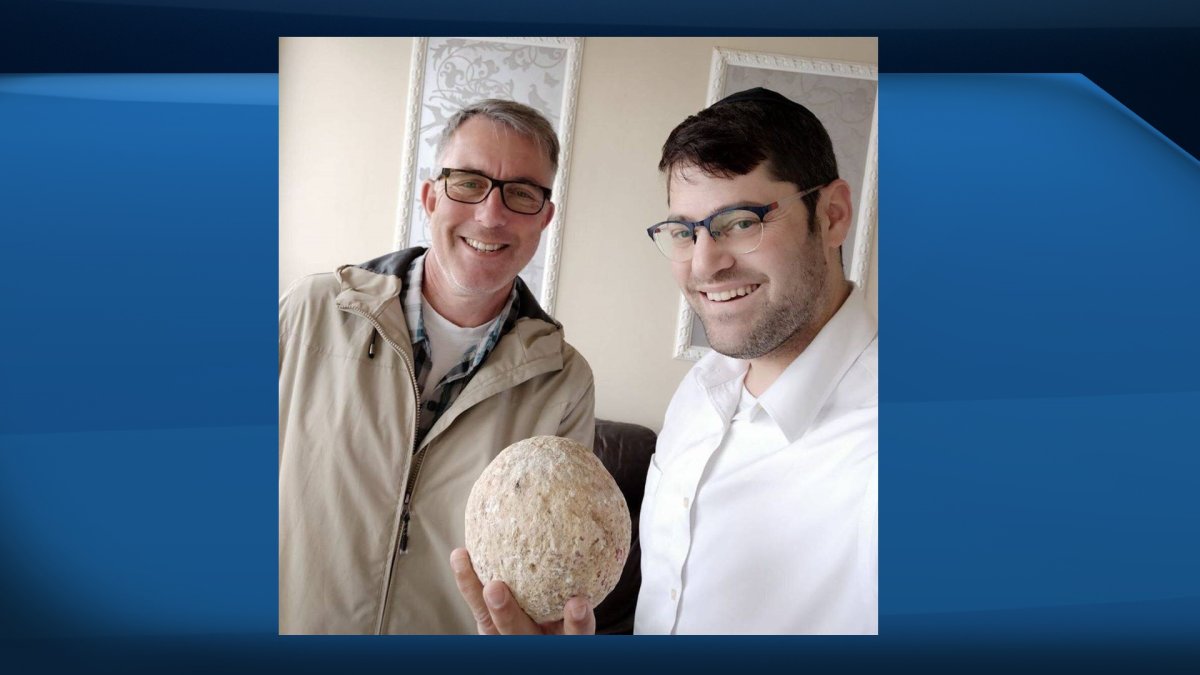Let he who is without sin cast the first stone — and let he who is with sin return it.

A man who pilfered a 2,000-year-old ballista stone from an archeological site in Jerusalem in 2005 has returned the long-“lost” artifact to Israeli authorities, citing apocalyptic fears of the novel coronavirus pandemic.
The anonymous man arranged to have the stone returned because he feared “the end of the world is near,” the Israel Antiquities Authority said in a statement on Facebook.
The thief feared catching COVID-19 and didn’t want the stone weighing on his conscience any longer, according to Moshe Manies, who returned the stone on the thief’s behalf.
“You are connected and know what to do with it,” the thief told Manies, according to a post on Manies’ Facebook account.
The melon-sized stone was once used in the Roman siege of Jerusalem around 70 CE, according to the Israel Antiquities Authority. The Romans would load the stones into large siege weapons called ballistas, then hurl them at the besieged city.
The thief grabbed the stone while visiting a national park in the City of David as a teenager, Manies said.
“He married and raised a family, and told me that for the past 15 years, the stone is weighing heavily on his heart,” Manies wrote in Hebrew.
He says the thief recently came upon the stone while cleaning up his house for Passover and decided the time was right to send it back.
Manies ultimately got in touch with Uzi Rotstein, who works at the Israel Antiquities Authority, to send the ballista stone back to its rightful place.

Get breaking National news
“We commend the return of the artifact and appeal to anyone who has taken an archeological artifact, to take a weight off their heart and return it to the State Treasury,” Rotstein told the Times of Israel.
“These artifacts, which are thousands of years old, are our national treasure. They tell the story of the land and of who resided here before us, and should be documented and displayed.”
It’s not the first time a ballista stone has proven too heavy for someone’s conscience.
Back in 2015, an anonymous thief returned two ballista stones to the Israel Antiquities Authority that he’d stolen 20 years earlier. He also left a note saying he felt cursed by them.
“These are two Roman ballista balls from Gamla, from a residential quarter at the foot of the summit. I stole them in July 1995 and since then they have brought me nothing but trouble,” he wrote.
“Please, do not steal antiquities!”
—
Questions about COVID-19? Here are some things you need to know:
Health officials caution against all international travel. Returning travellers are legally obligated to self-isolate for 14 days, beginning March 26, in case they develop symptoms and to prevent spreading the virus to others. Some provinces and territories have also implemented additional recommendations or enforcement measures to ensure those returning to the area self-isolate.
Symptoms can include fever, cough and difficulty breathing — very similar to a cold or flu. Some people can develop a more severe illness. People most at risk of this include older adults and people with severe chronic medical conditions like heart, lung or kidney disease. If you develop symptoms, contact public health authorities.
To prevent the virus from spreading, experts recommend frequent handwashing and coughing into your sleeve. They also recommend minimizing contact with others, staying home as much as possible and maintaining a distance of two metres from other people if you go out.
For full COVID-19 coverage from Global News, click here.










Comments